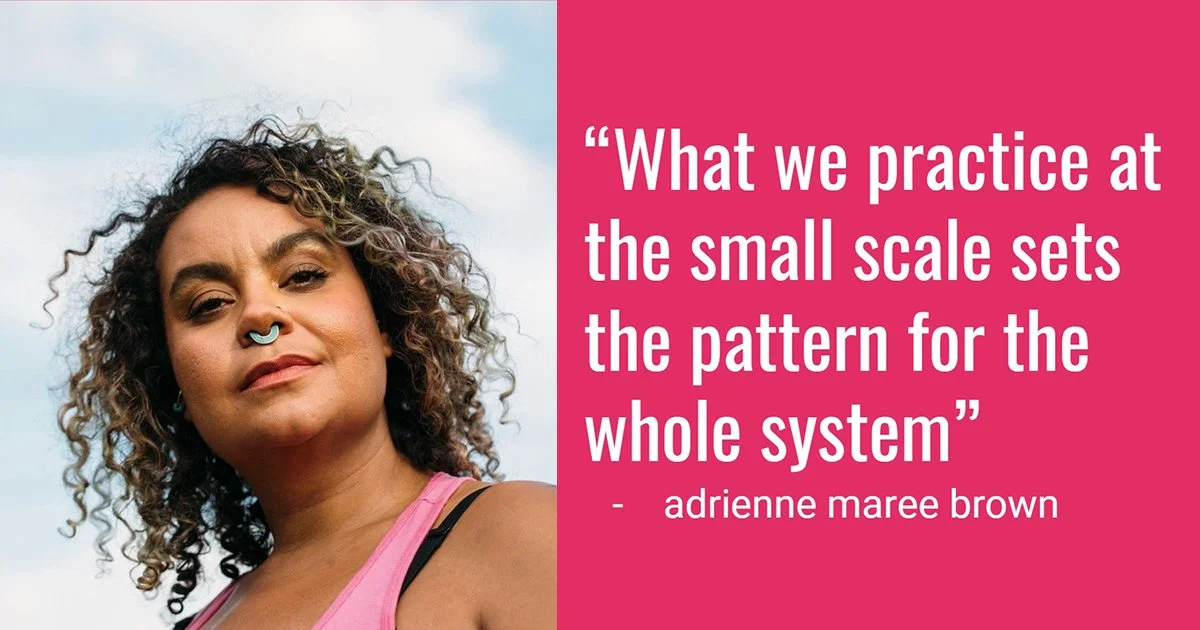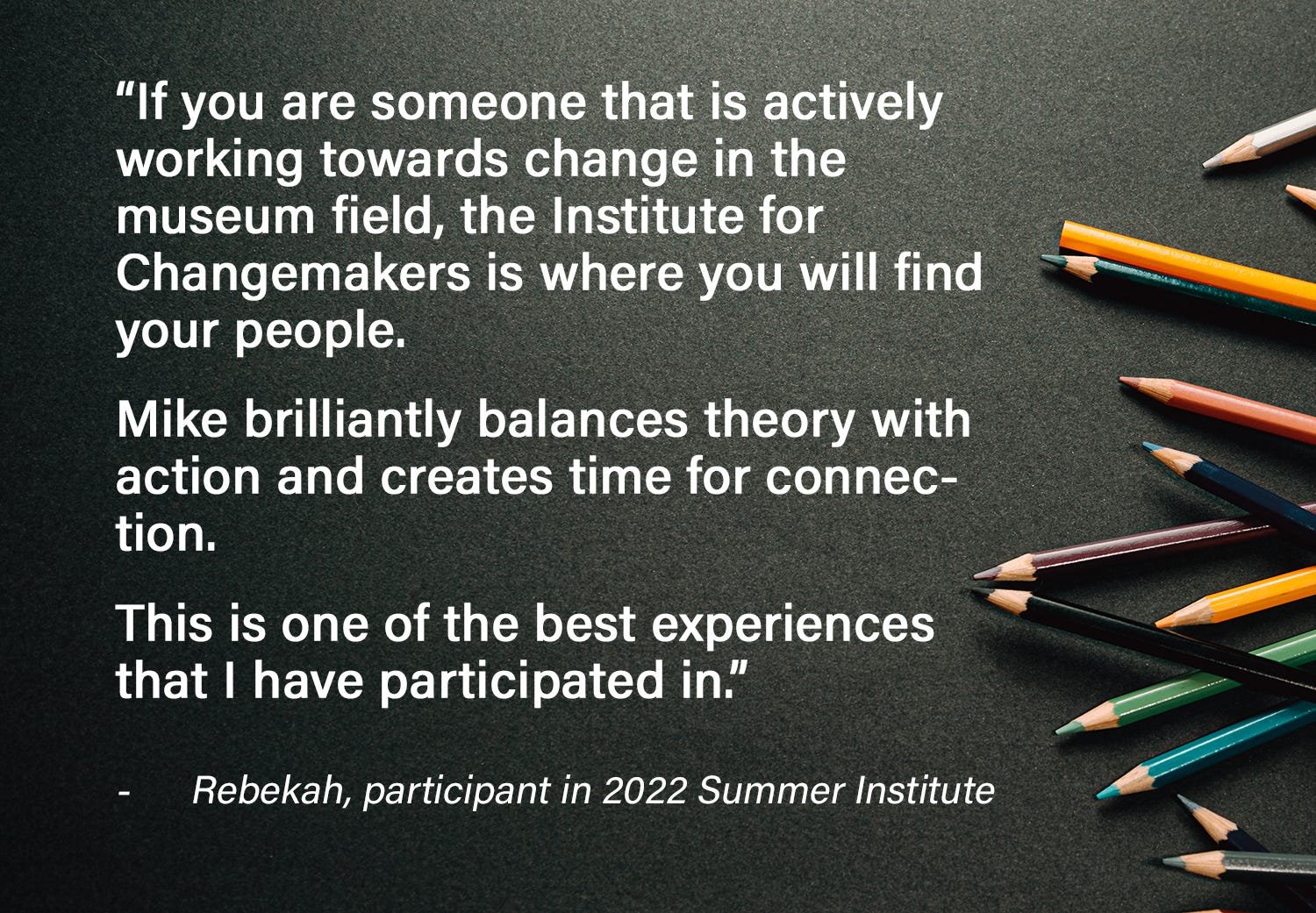Workshop: Institute for Changemaker
Change is a constant — yet how do we as professionals, leaders, staff, consultants, volunteers, and students learn not just to respond or react to change, but become shapers of it? How might we learn to see ourselves as strong advocates for positive change, especially with regards to centering community and advancing equity, inclusion, and accessibility across our work (despite the common barriers we all face)?
The Institute for Changemakers is a multi-week online intensive for professionals that dives deeply into transformation and change, empowering participants towards action and equipping them with a road map to achieve their individual and, when applicable, institutional goals.
Typically, the Institute for Changemakers is broken into 3-5 sessions. Each Institute involves a combination of individual reflection, small group breakouts, and large group discussions.
Exercises include strategies to help:
reflect on our relationship with change and build empathy within our institutions
prioritize the human connections within our work and address experiences of burnout and overwork
grow our support network to catalyze collective action
At the end of each Institute, partipants leave with a individualized action plan.
There are two ways professionals can join in this workshop:
Either as individual professionals who sign up for one of the yearly workshops (for example, learn about the the Fall 2023 version here)
Or through as part of a team through their museum or organization, either as a component of larger consulting services or on its own (Inquire using this form for more details)
The Institute for Changemakers is led by Mike Murawski and builds on the strategies outlined in his book, Museums as Agents of Change, and the substack community “Agents of Change.” Bryna Campbell provides organizational support.
“The Institute for Changemakers is a great way to gain perspective, make clear plans, and see what positive change you can bring to your institution and your own practice.” -Wayne, Fall 2022 participant


